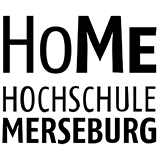Introduction
Merseburg University of Applied Sciences is a public university of applied sciences located in Merseburg, Saxony-Anhalt, Germany. It is famous for its teaching and research in the fields of engineering, natural sciences, social work, media, culture, business administration and information science.
Overview
Student size: Currently, the school has about 3,999 students.
Major settings: The school offers 27 undergraduate and master's programs, covering multiple disciplines such as engineering, natural sciences, social sciences, humanities and arts. Among them, undergraduate majors include applied computer science, automation engineering/information technology, business administration, etc.; master's majors include applied media and cultural studies, applied sexology, chemistry and environmental engineering, etc.
History and establishment time
The school was founded in 1992 and its predecessor was Reiner-Merseburg University of Technology.
School strength
Faculty: It has 294 academic staff with rich teaching experience and professional knowledge, and can provide students with high-quality education and guidance.
Teaching resources: The school is equipped with advanced teaching facilities and laboratories to provide students with good conditions for practical operation and scientific research. In addition, it has established cooperative relationships with many enterprises and institutions to provide internship and employment opportunities for students.
Nature of the institution
Public non-profit higher education institution.
Educational philosophy
Practice-oriented: Focus on cultivating students' practical ability, through practical teaching, internships and project practice, let students apply the theoretical knowledge they have learned to actual work, improve students' ability to solve practical problems, and enable students to quickly adapt to workplace needs after graduation.
Interdisciplinary education: Emphasize interdisciplinary teaching methods, integrate knowledge and methods from different disciplines into teaching, cultivate students' interdisciplinary thinking ability and comprehensive literacy, enable students to think and solve problems from multiple perspectives, and better cope with complex and changing social and professional challenges.
International vision: Actively promote international education, carry out international cooperation and exchange projects, such as student exchange, joint training, international internships, etc., so that students have the opportunity to contact educational concepts and practical experiences of different countries and cultures, broaden their international vision, and improve their international competitiveness and cross-cultural communication ability.
Key laboratories and disciplines
Key disciplines: Chemistry, physics, engineering and other disciplines are the key disciplines of the school, and have certain advantages and characteristics in teaching and research in these disciplines. For example, the chemistry discipline has in-depth research in the fields of organic chemistry, materials science, biochemistry, etc.; the physics discipline has achieved remarkable results in materials science, quantum and particle physics, optical engineering, etc.; the engineering discipline covers multiple professional directions, such as mechanical engineering, chemical engineering, electrical engineering, etc., providing students with systematic engineering education and practical opportunities.
Key laboratories: The school has multiple professional laboratories, such as chemical laboratories, physical laboratories, engineering laboratories, etc. These laboratories are equipped with advanced instruments and equipment, providing an important support platform for the scientific research work of teachers and students, and carrying out cutting-edge research work in related fields.
Department
The school has not found a clear division of departments, but from the perspective of professional settings, it can be roughly divided into engineering departments, natural science departments, social science departments, humanities and arts departments, etc.
Ranking
Ranked 2485th in the world ranking in 2024 and 148th in Germany.
In terms of subject rankings, chemistry ranks 80th in Germany and 2486th in the world; physics ranks 84th in Germany and 2610th in the world; liberal arts and social sciences ranks 109th in Germany and 2724th in the world; engineering ranks 86th in Germany and 2862nd in the world.
Expenses
Education at the school is free for everyone, but students need to pay a semester fee of about $1,000 per academic year.
Campus
Campus location: The campus is located in the suburbs of the town of Mercerburg, with a beautiful surrounding environment and good natural ecology, providing students with a quiet learning and living environment.
Campus facilities: The school has complete campus facilities, including modern teaching buildings, libraries, laboratories, student dormitories, canteens, sports facilities, etc., to meet students' learning, living and entertainment needs.
-

Heidelberg University
-

University of Freiburg
-

University of Jena
-

University of Marburg
-

University of Rostock
-

University of Halle-Wittenberg
-

University of Bayreuth
-

Leipzig University
-

University of Tübingen
-

Humboldt University of Berlin
-

Mesoamerican University
-

Istmo University
-

Mariano Galvez University of Guatemala
-

Regional University of Guatemala
-

Galileo University
-

Francisco Marroquín University
-

Rafael Landívar University
-

University of the Valley of Guatemala
-

University of San Carlos of Guatemala
-

Technological Institute of Tlaxcala Plateau
-

Golfo University
-

Technological University of South Sonora
-

Technological University of Huejotzingo
-

Tizimín Institute of Technology
-

Chilpancingo Institute of Technology

